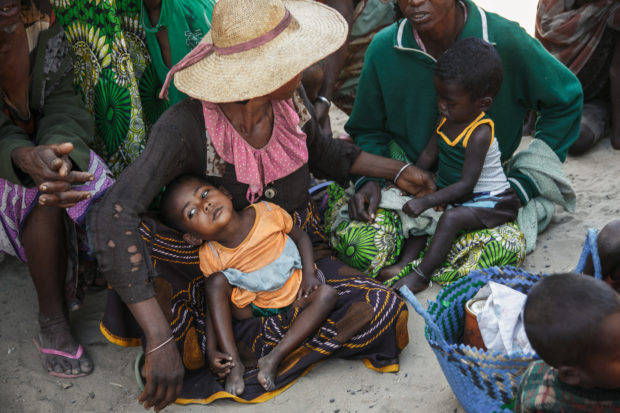Global warming not responsible for Madagascar famine–study

Beneficiaries wait their turn to be consulted by Doctors Without Borders (MSF) mobile clinic medical staff in the village of Befeno, Commune Marovato, on September 2, 2021. AFP
‘Not surprising’
Those findings correspond with the results of a report released in August by the UN’s Intergovernmental Panel on Climate Change, which indicated that global warming is not expected to affect levels of drought in Madagascar until it reaches two degrees Celsius above the pre-industrial era. At present the increase is around 1.1 C. “Our results are not surprising, they are very much in line with previous studies,” Friederike Otto of Oxford University’s Environmental Change Institute told AFP. “I was more surprised by the UN branding this as clearly as climate change induced,” she added, saying “extreme events are always a combination of things”. READ: Madagascar prays for rain as UN warns of ‘climate change famine’ “It’s really important not to automatically assume that every bad thing that is happening is because of climate change, it’s not true.” Climatologist Robert Vautard, head of France’s Pierre-Simon Laplace Institute and another of the study’s authors, agrees. In the Madagascar case “if there is any influence by climate change it is minimal,” even too small to be detectable, he told AFP. According to the WWA report, “poverty, poor infrastructure and dependence on rain-fed agriculture, combined with natural climate variability, are the main factors behind the Madagascar food crisis, with climate change playing no more than a small part.” However no one is questioning the seriousness of the situation. “They have been hit by a major drought two years in a row, with people forced to leave their land. It’s a dramatic situation,” said Vautard. “And since we are relatively confident that droughts will increase in Madagascar at least from +2C onwards, we must still be concerned and try to limit climate change,” he continued. Maarten van Aalst, director of the International Red Cross Red Crescent Climate Centre, said that the events in Madagascar show that “in many cases we are not even prepared for today’s climate”. “Addressing the vulnerability in the region and improving the living conditions of the population remains critical.”
READ NEXT
EDITORS' PICK